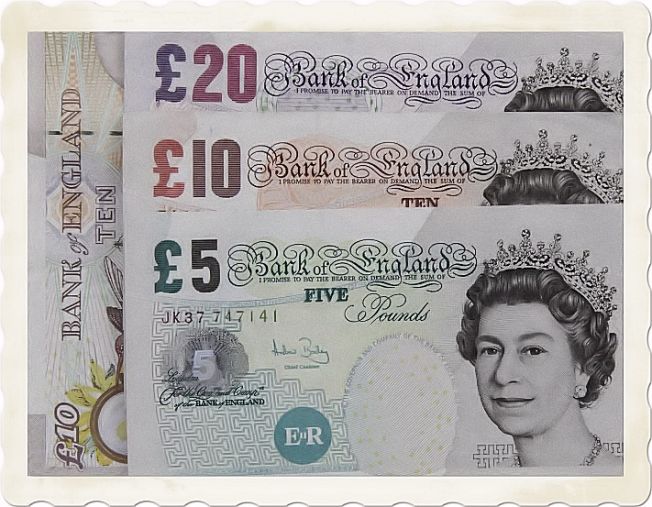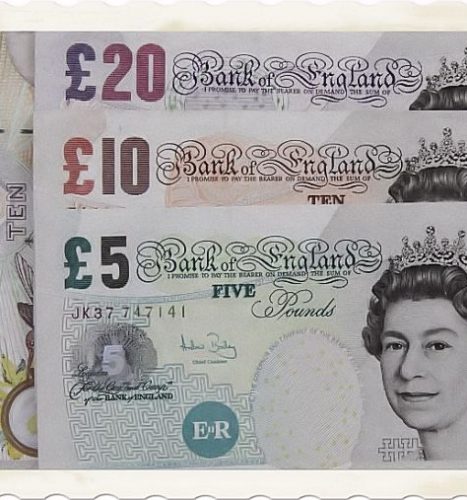
English for business, trade and finance. Marketing, money, commerce and letter writing, a complete short summary course (Free PDF) for schools and universities, but not only for students.
Economics is the social science that studies the production, distribution, and consumption of goods and services. Economics aims to explain how economies work and how economic agents interact. Economic analysis is applied throughout society, in business, finance and government, but also in crime, education, the family, health, law, politics, religion, social institutions, sex, war, and science.
Economy – the system of production and distribution and consumption. The efficient use of resources; “economy of effort”. Types of economy. Planned economy, Free market economy Mixed economy. In the first type the government or state makes decisions about what will be produced, how it will be produced and in what quantities, at what price it will be sold and who will benefit from the sale of the products and services. Several countries in Eastern Europe followed this model in the past. The second type is also known as the “capitalist system”.
The main decisions about production and prices are established by the economics of supply and demand. Consumers choose who to buy from and how much they are willing to pay for a product or a service. Japan and USA are example of this type. Mixed type is the economy that combines elements of both free market and planned economy. Private companies are free to compete for most goods and services, but the government provides other services, such as public transport, education and health care. Italy, France, U.K. and Germany are example of mixed economy.
The first Law of Economics: the only thing more dangerous than an economist is an amateur economist. The second Law of Economics: the only thing more dangerous than an amateur economist is a professional economist!
The four factors of production: Natural resources, Labour, Capital and Entrepreneurship. In developing countries mining and farming provide most of the jobs for the working population. As countries like India and China become richer, industries grow up and people move from the countryside into the cities to find work in the secondary sector. Richer countries, like Japan and those in Europe and North America, employ most people in their service industries.

Three things are needed to make the economy of a country work: land, labour and capital, which are exploited by various enterprises to provide products and services. The three sectors of production: primary sector: farming, mining, fishing, forestry. The secondary sector processes the raw material from the primary sector. This means that they take the raw materials and transform them into goods and products. It includes manufacturing and construction. (food and beverage, textile, car industry, building). The tertiary sector involves the provision of services to final consumers and businesses. Types of industries in the tertiary sector are: retailing, the sale of goods from a store; banking and insurance; education.
Commerce is a general term used to describe the sale and distribution of goods and services. The commercial activity of buying and selling goods and services is called “trade”. Trade is divided into home trade, when goods and services are sold and bought inside a country, and foreign trade, when this commercial exchange happens between two different countries.
In foreign trade we distinguish between import, when goods or services are bought from a foreign seller, and export, when goods or services are sold to a foreign buyer. Another aspect of commerce refers to the services which make trade possible, for example: banking, insurance, transport and marketing. Trade – The business of buying and selling commodities; commerce.
Stages of a sales transaction
The basics of importing and exporting are not different from the essential principles of buying and selling on a single market. Business transactions usually go through a series of steps that bring buyer and seller closer together until the deal is finalised and completed.
Stage 1 The Enquiry. The buyer requests general information and a quotation. The voluntary offer. The seller offers goods to potential buyers. The unsolicited offers and spam. Stage 2 The reply to the enquiry. The seller provides information and quotes prices. The follow-up letter. The buyer requests further information and a quotation. Stage 3 The Order The buyer places the order. Stage 4 The confirmation and execution of the order. The seller agrees to fulfil the order and arranges for delivery. Stage 5 The payment. The buyer pays for the goods.

Business letters are laid out following a standard sequence. You usually include the following elements:
Letterhead – References (Our Ref……/Your Ref…..) – Date – Addressee – Attention Line (The import Manager/ Mister….) – Salutation (Dear Sir/Madam etc.) – Subject Line (Your promotional offer) – Body of the letter – Closing greeting (Yours faithfully) – Signature – Enclosures (Enc: 1 list of articles).
Writing an email. Some elements that you need to write in a letter are automatically provided by the email system. For example, you don’t need to write the date and your internet address. You should always write the subject of your message to signal to your addressee what the message is about. An email body text usually tends to be direct and to the point. As a general rule, avoid unnecessary information and wordy sentences.
If you wish to provide more information or data attach a file. In general the register of the language tends to be more informal than in a business letter, so you can safely use abbreviations, acronyms and linguistic devices that speed up reading, and consequently, action. But caution: avoid excessively colloquial expression.
Fax machine have been replaced by new technologies such as text messages and e-mails. Traditional business letters have been substituted by e-mails. Text messages are not called sms in North America and the UK . The term “text messaging” is preferred. E-mails are a quick and simple way to send messages. E-mails can be sent and received at any time of the day and you can receive immediate feedback. Fax are still used because electronic signatures on contracts are not always recognized by law if you use emails, while faxed contracts with copies of signatures are.
Nowadays, however we have the certified e-mail, and so the problem doesn’t exist any longer. Telephone communications are very useful and employed because they allow people to communicate on the move and do business from any location. Nowadays, however, with the development of wireless internet connections and mobile phones you can use your smartphone or Ipad or netbook wherever you are as well.

Job hunting. Making an application. When you find a job you are interested in, you need to convince your potential employer that you are the right person to fill the position. You do this either by sending a CV, or by filling in an application form, which many employers prefer as it gives a standardised format and thus saves the recruiter time. The CV or form will normally be sent with a covering letter in which you draw attention to the reasons why you would be right for the job, highlighting your key skills, experience and education, and getting the attention of potential employers.
The letter should also demonstrate that you have done your homework: including details specific to the job you seek shows that you have taken the time to consider the position, the company, and their needs. Lastly, it should demonstrate your writing and editing skills and make potential employers want to know more about you. Online forms, however, are often sent without a covering letter.
What are the main points to include in a curriculum vitae? The Curriculum Vitae is an outline of a person’s educational and professional history, usually prepared for job applications (L, lit.: the course of one’s life). A CV is the most flexible and convenient way to make applications. It conveys your personal details in the way that presents you in the best possible light and can be used to make multiple applications to employers in a specific career area.
For this reason, many large graduate recruiters will not accept CVs and instead use their own application form. An application form is designed to bring out the essential information and personal qualities that the employer requires and does not allow you to gloss over your weaker points as a CV does. In addition, the time needed to fill out these forms is seen as a reflection of your commitment to the career.
What information should a CV include? Personal details, Normally these would be your name, address, date of birth (although with age discrimination laws now in force this isn’t essential), telephone number and email. Education and qualifications, Your degree subject and university, plus A levels and GCSEs or equivalents. Mention grades unless poor!
Work experience, Use action words such as developed, planned and organised. Even work in a shop, bar or restaurant will involve working in a team, providing a quality service to customers, and dealing tactfully with complaints. Don’t mention the routine, non-people tasks (cleaning the tables) unless you are applying for a casual summer job in a restaurant or similar.

Try to relate the skills to the job. A finance job will involve numeracy, analytical and problem solving skills so focus on these whereas for a marketing role you would place a bit more more emphasis on persuading and negotiating skills.
Interests and achievements, Keep this section short and to the point. As you grow older, your employment record will take precedence and interests will typically diminish greatly in length and importance. Don’t put many passive, solitary hobbies (reading, watching TV, stamp collecting) or you may be perceived as lacking people skills.
Show a range of interests to avoid coming across as narrow : if everything centres around sport they may wonder if you could hold a conversation with a client who wasn’t interested in sport. Hobbies that are a little out of the ordinary can help you to stand out from the crowd: skydiving or mountaineering can show a sense of wanting to stretch yourself and an ability to rely on yourself in demanding situations.
Any interests relevant to the job are worth mentioning: current affairs if you wish to be a journalist; a fantasy share portfolio such as Bullbearings if you want to work in finance. Any evidence of leadership is important to mention: captain or coach of a sports team, course representative, chair of a student society, scout leader. Anything showing evidence of employability skills such as teamworking, organising, planning, persuading, negotiating etc.
Skills. The usual ones to mention are languages (good conversational French, basic Spanish), computing (e.g. “good working knowledge of MS Access and Excel, plus basic web page design skills” and driving (“full current clean driving licence”). If you are a mature candidate or have lots of relevant skills to offer, a skills-based CV may work for you
Referees. Normally two referees are sufficient: one academic (perhaps your tutor or a project supervisor) and one from an employer (perhaps your last part-time or summer job). See our page on Choosing and Using Referees for more help with this.
Business The occupation, work, or trade in which a person is engaged. Commercial, industrial, or professional dealings. A commercial enterprise or establishment. Volume or amount of commercial trade. The business of America is business. The organization of business. Sole traders. Partnerships. Limited companies. Cooperatives (co-op) The growth of business. Mergers. Takeovers. Acquisitions. Joint Ventures. Multinationals.
The structure of a company. Board of directors. Managing director. Sales manager. Marketing manager. Human resources manager. Purchasing manager. Production manager. Finance Manager. Information Systems Manager. Business transaction. Speaking business. Writing business. Business Communication. Enquiries and replies. Offers and replies. Orders and replies, modification and cancellation of orders. Complaints and replies. Reminders and replies. Methods of payments. See also “factoring” and so on.

Synonyms: business, industry, commerce, trade, traffic. These nouns apply to forms of activity that have the objective of supplying commodities. Business pertains broadly to commercial, financial, and industrial activity: decided to go into the oil business. Industry entails the production and manufacture of goods or commodities, especially on a large scale: the computer industry.
Commerce and trade refer to the exchange and distribution of goods or commodities: laws regulating interstate commerce; involved in the domestic trade. Traffic pertains in particular to businesses engaged in the transportation of goods or passengers: renovated the docks to attract shipping traffic. The word may also suggest illegal trade: discovered a brisk traffic in stolen goods.
Entering Foreign Markets. Market factors are the main reason companies decide to start doing business abroad. As their domestic markets become saturated, they turn to vast untapped markets in other countries, particularly in the developing world, where in countries like China increasing affluence brings new potential customers for all sorts of consumer goods that people in the developed world already have. Obviously there are risks involved: unfamiliar market conditions lead many companies into making basic errors and failing, or there may be political risks like corruption, War and civil unrest. How to enter foreign markets:
• risks can be limited by selling franchises to entrepreneurs who are given the right to sell a product or service in return for a share of the profits or a fee. This means it is the franchisee who makes the investment and takes the risks; • selling products to an import company which then resells them in their local market is also a relatively risk-free method of entering foreign markets; • local agents can be appointed to represent a company In return for commission on sales. Choosing the right agents is important as they should he familiar with the market and local regulations and also be able to check the credit-worthiness of potential clients; • opening a branches or setting up a subsidiary is far riskier, even with local investors, as both options require heavy initial Investment; • joint ventures with a local partner operating in a related field are also expensive, but have the advantage that the local partner knows the market, and expenses, risks and useful local contacts are shared.
International Trade. Goods can be made or produced in one country and sent to another to he sold: this is known as exporting. China, for example, exports clothes to much of the EU.
Importing, on the other hand, is when goods are brought into a country to be sold there, so we can say the EU imports clothes from China. The balance of trade is the difference between how much a country exports and how much it imports. If a country exports more than it imports, it is said to have a trade surplus; if it imports more, it has a trade deficit. The balance of trade includes goods – visible exports and imports like food, machines, etc. – and services like tourism and banking, called invisible exports (because you cannot see what is sold) which bring in invisible earnings. A country’s balance of payments is the difference between the money coming into a country and the amount going out. If more money comes into a country than goes out, there is a balance of payments surplus; if more money goes out, there is a balance of payments deficit. The balance of trade and the balance of payments are the methods used for talking about a country’s volume of international trade.
International organizations for global trade. To counteract protectionism and enforce a fair balance in global trading practices, a number of supranational organizations have been established, of which the World Trade Organization (WTO) is the most important. ‘The WTO aims to ensure that global trading respects agreements designed to eliminate trade harriers and avoid trade distortion.
The authors of these agreements are the member governments themselves – the agreements are the outcome of negotiations among members. This means that when a member government feels another is violating an agreement or a commitment that it has made in the WTO in any way, it can appeal to the WTO. Ultimate responsibility for settling disputes also lies with member governments, through the Dispute Settlement Body. THE WORLD TRADE ORGANIZATION • Location: Geneva, Switzerland
Payments in International Trade.
Risk assessment. More risk is involved in international trade than in home trade and exporters have to take into account a number of factors when specifying payment methods. These include the importer’s credit standing, the country in which he operates and the degree of trust the seller has in him. If the buyer is rated negatively for any of these factors, the exporter will select a method of payment which makes the transaction safer for him, such as payment in advance.
If the buyer is rated positively, the exporter will usually grant a more favourable form of payment, such as open account. Exporter Higher risk decreasing methods of payment are as follows: open account; bank transfer; clean bill collection; documentary collection; letter of credit; payment in advance. On the contrary importer higher risk decreasing methods of payments are: payment in advance; letter of credit; documentary collection; clean bill collection; bank transfer; open account.
And in the Free PDF you can also find summaries of the following topics: Entering Foreign Markets; International organizations for global trade; Payments in International Trade; Methods of Payment; Financing Services for International Trade; Documents in International Trade; Packing; Means of transporting goods; Transport documents; IMCOTERMS 2000; The structure of a company; Business transaction; Globalisation; Channel of distribution: Manufacturer, Wholesaler, Retailer, Consumer; Market Segmentation and Marketing bases; The Stock Exchange; Finance: the ten golden trading rules.
Read more about these topics downloading “Money, commerce, business and finance, marketing and letter writing, a complete short summary course (Free PDF) for schools and universities, but not only for students.”
Other pages on the same topics:


